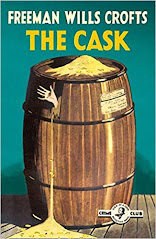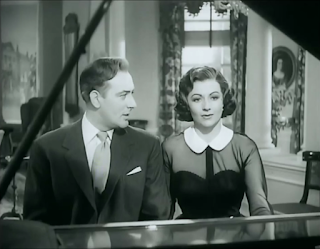The story of a complex police investigation full of surprises

The story starts with a consignment of French
wines unloaded at the docks in London
Although
it was his first novel, The Cask, by Freeman Wills Crofts, has been judged to
be one of his most ambitious and intricately plotted.

wines unloaded at the docks in London
The
action takes place in London and Paris, there are three different sets of
investigators and, according to the author himself, the novel was about 40,000
words too long.
But
despite being published more than a century ago, The Cask is as compelling and
fast moving as many contemporary novels and I think it is still well worth
reading.
The story
begins when a consignment of French wines is unloaded from a steamship at the
docks in London. One of the casks is slightly damaged during the process, so
the shipping clerk, who is overseeing the unloading, looks inside it. He finds
that it doesn’t contain wine after all, but gold sovereigns. He then makes a
gruesome discovery as he searches amongst the sawdust in which the sovereigns
are packed.
He
consults his superior and they decide to go to the police, but when they return
to the docks they find the cask and its contents have gone.
Inspector
Burnley of Scotland Yard is put on the case and he manages to track down the
cask. When it is unpacked, the police find they are dealing with a murder
investigation.
The investigation takes the story's detective,
Inspector Burnley, to Paris
Burnley’s
enquiries take him to Paris, from where the cask was dispatched, and he pursues
his investigation with the help of Inspector Lefarge, a detective from the
Sûreté.
After
exhaustive enquiries, the case becomes clearer and a Frenchman living in
London, Leon Felix, is arrested.
The case
is then taken up by the solicitor of the accused, John Clifford, and the King’s
Counsel he instructs, Lucius Heppenstall. They meet to prepare a defence for
their client and review the evidence against Felix.
They
decide that if their client is innocent he must have been the victim of a
cunning plot to implicate him. Their planned course of action is to test the
evidence and they decide to employ a team of private detectives to travel to
Paris and review the work of Scotland Yard and the Sûreté.
Georges
La Touche, who is considered the smartest private detective in London, is
dispatched to Paris with some of his men and he painstakingly tests all the
evidence the police have found, working tirelessly to try to break the alibis of the
people involved
The Cask is available as a
Collins Crime Club title
In a
dramatic denouement he confronts the person who has masterminded the whole plot
against Felix.
The
alibis depend on train times, as do many of the alibis of the characters in
later novels by Crofts, who worked for the railways as a civil engineer until
he retired to write full time.
In 1946,
Crofts wrote a Foreword for a new edition of The Cask, describing how he came
up with the idea for the story.
When he
started writing the novel in about 1912 he had been off work for a lengthy period due
to an illness and was bored and wanted something to do. He says he started by
writing down the most absurd and improbable things he could think of. He read
the first chapter of The Cask to his wife and she encouraged him to complete
the book.
Looking
back, he says the story could probably have been told in about 80,000 words
instead of 120,000. Crofts went on to write another 30 novels, developing a
much more systematic way of plotting and writing along the way.
However,
more than a century after The Cask was first published, it continues to
intrigue and entertain new readers.
I found
it to be well written, exciting and constantly surprising, and I would
definitely recommend it to anyone who enjoys detective fiction.
The
novels of Freeman Wills Crofts are still in print, even though the author died
more than 60 years ago.
(Paris picture by Sadnos via Pixabay)















